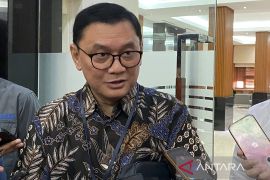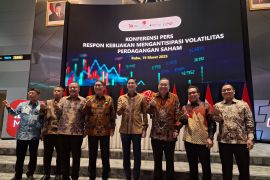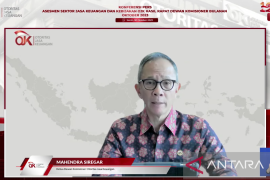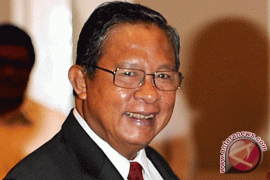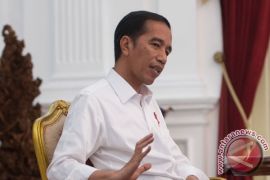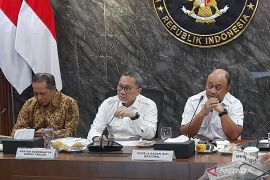Bank Indonesia Deputy Governor Mirza Adityaswara said compared to other emerging markets, Indonesias economic stability has been maintained very well and it has been attracting foreign capital.
"Indonesia has performed well as shown by the Consumer Price Index and the deflation in food prices in March after harvests, while foreign exchange reserves have also increased," he said.
In several emerging markets, such as South Africa, Mirza said there have even been pressures and capital outflows following the sudden replacement of the finance minister in that country.
"The market was surprised and so there was a capital outflow in South Africa," he said.
Financial market pressures have also emerged in other emerging markets, such as Turkey and Mexico.
As a result, Mexicos central bank has raised its reference rate to prevent capital outflow and control inflation.
Market pressures in Mexico risen since the election of Donald Trump as U.S. president.
"Turkey has also experienced pressure," he added.
Mirza said the situation in Indonesia, on the other hand, was better and marked by large capital inflows, especially with state securities reaching Rp62.1 trillion.
Foreign capital that entered the share market reached Rp9.7 trillion, to Bank Indonesia Certificate and BI deposit certificate Rp5.7 trillion and corporate bonds Rp1.5 trillion.
Compared with April 2016 or the same period last year, total foreign funds that entered through state securities rose to Rp8.7 trillion, with the share market growing to Rp5 trillion and BI instruments to Rp3.4 trillion.
Bigger capital inflows have also been reflected in the higher rupiah exchange rate, which stood at around Rp13,300 per U.S. dollar, according to the Jakarta Interbank Spot Dollar Rate (JISDOR).
"Now we need to just monitor the gross domestic product, as well as year to date credit growth, which still stands at minus 0.7 percent," Mirza said.(*)
Editor: Heru Purwanto
Copyright © ANTARA 2017
